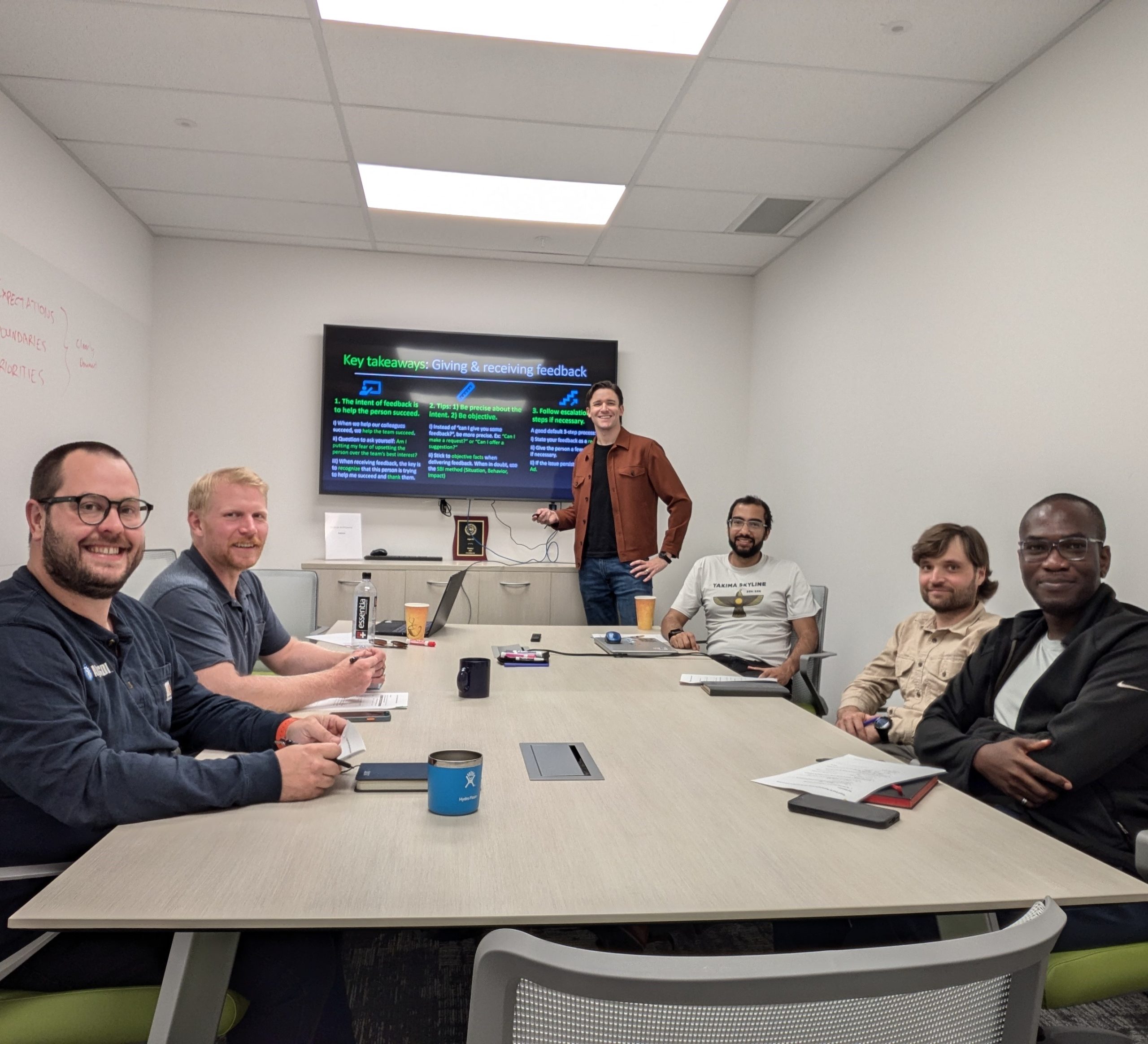
Team training modules
Select any combination of the training modules below. They can be grouped any way you like.

Professional Communication training modules
- Concise, clear, efficient communication: Techniques and methods for conveying information as efficiently as possible
- Giving constructive feedback tactfully: Techniques for delivering and receiving feedback constructively and objectively
- Building a robust Communication Plan: How to set clear ground rules for communication & hold people accountable to them
- Building a culture of speaking up: How to establish a culture of free, open communication
- Gaining consensus & buy-in: Techniques and tips for getting people on board with changes
- Running lean and efficient meetings: Knowing when (and when not) to call a meeting + Best practices for running efficient, organized, productive meetings
- Ensuring good stakeholder communication: How to set up a robust, efficient process to ensure necessary information gets to the right people
- Delivering powerful presentations: Best practices for delivering concise, engaging presentations
- Communicating failure and setbacks: How to communicate bad news constructively and establish a fast-acting, solution-focused culture
Team Collaboration training modules
- Setting proper expectations, priorities, and boundaries: How to establish a team culture of fairness, alignment, and objectivity
- Making complex decisions: Strategies, techniques, and tips for making complex decisions with competing risks and trade-offs
- Establishing robust peer review systems: How to establish a culture of constructive, self-propelled peer review
- Making data-driven arguments: How to properly use data to make arguments and decisions constructively (even when there is little to no data)
- Project management 101: Basics of project planning, progress tracking, and risk mitigation
- Using AI effectively: How to properly use AI as a productivity tool while avoiding its known drawbacks
- Holding peers accountable: Techniques and tips for holding peers accountable constructively
- Negotiating tasks & bandwidth: How to constructively and fairly divide up work with minimal controversy
- Estimating time, cost, and effort: Techniques for making maximally accurate estimations, even in the absence of hard data
- Proposing new ideas: Steps for proposing & gaining acceptance of new ideas
Building A Healthy Team Culture training modules
- Eliminating office politics: How to identify and eliminate sources of office politics
- Source #1: Prioritizing an individual over the company
- Source #2: Maneuvering for visibility
- Source #3: Currying favor with influential people
- Source #4: Applying uneven standards (favoritism)
- Source #5: Overstating or understating the value of a piece of work
- Source #6: Making disparaging comments
- Avoiding common logical pitfalls: How to identify and avoid logical pitfalls common in professional environments
- Pitfall #1: The “false choice”
- Pitfall #2: Not thinking “win-win”
- Pitfall #3: Presenting a hypothesis as fact
- Pitfall #4: Single-point estimation
- Pitfall #5: The “sunk cost fallacy”
- Pitfall #6: Prioritizing the “letter of the law” over the “spirit of the law”
- The 5 Dysfunctions of A Team: How to identify and eliminate sources of dysfunction [from the book by Patrick Lencioni]
- Dysfunction #1: Absence of Trust
- Dysfunction #2: Fear of Conflict
- Dysfunction #3: Lack of Commitment
- Dysfunction #4: Avoidance of Accountability
- Dysfunction #5: Inattention to Results